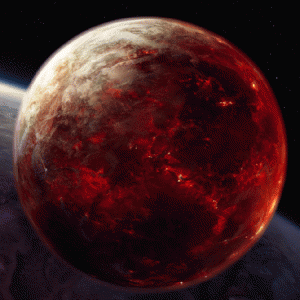Why Darth Vader Might Be in the Celestial Kingdom
It’s no secret that Darth Vader was one bad hombre.
He orchestrated the genocide of the peace-keeping Jedi, down to the children. He was instrumental in oppressing trillions of sentient beings in the galaxy, and his heavy breathing became synonymous with fear.
And yet, at the end of Return of the Jedi, Darth Vader gets to be a space ghost.
If you dig deep into the enraged caffeine-fueled Star Wars forums, you’ll find many a fan who will protest Darth Vader’s inclusion to Star Wars heaven. It would, in effect, be like letting Adolf Hitler through the pearly gates. Surely Vader deserves to be melting in a lava pit on Mustafar for all eternity for his crimes?
I disagree.
I’m not Heavenly Father, but according to the gospel, I think Darth Vader, if he lived in this reality, would have a place in the Celestial Kingdom. Vader’s mortal journey answers the age-old question: Should mercy trump justice, or can justice and mercy have the ability to be satisfied at the same time?
Justice
Mercy can’t overtake justice. In Jacob 6:10, it reads:
10 And according to the power of justice, for justice cannot be denied, ye must go away into that lake of fire and brimstone, whose flames are unquenchable, and whose smoke ascendeth up forever and ever, which lake of fire and brimstone is endless torment.

Sounds like a one way ticket to Mustafar to me.
Vader needed to answer for his crimes, just like we all have to answer for our sins, in one form or another. There are consequences for our actions, and we will pay for them, whether in this life or the next.
I’d argue that Vader paid for his deeds in the life he led. Because of his actions, he lost everything. He lost the love of his life, his children, the ability to feel love and even most of his physical body.
Sin doesn’t bring happiness. It brings misery and the justice of God, and anyone who has committed serious sin can testify to this. Dishonesty ruins families, lust decays love and the physical body is torn to pieces because of drug addiction. The pathway to the dark side is littered with payments, both big and small, and no one goes unscathed.
Whether they can return to the light side is another story.
Mercy
Darth Vader did, in the end, return to the light side. Despite his claims that it was too late for him, he saw the errors in his ways and sacrificed himself both for his son and the galaxy, and that sacrifice earned him a place in Force heaven.
In reality, how does that work? Who deserves redemption and who deserves condemnation?
Elder Bednar had something to say on the subject in his article in the April 2012 edition of the Liahona:
The grand objective of the Savior’s gospel was summarized succinctly by President David O. McKay (1873–1970): “The purpose of the gospel is … to make bad men good and good men better, and to change human nature.”1 Thus, the journey of mortality is to progress from bad to good to better and to experience the mighty change of heart—to have our fallen natures changed

Darth Vader fulfilled those requirements. That’s the miracle of the Atonement; no matter how corrupt you become, the Savior’s love can help you cross that bridge from bad men to good. In the end, Vader’s nature had changed from evil to good, and therefore mercy could allow him to enter into eternal life.
That’s why I believe I’ll be neighbors with Vader in the next life. We all stray from the straight and narrow path during mortality, but even though your sins may be as scarlet as a red lightsaber, you are never too far from the light to be able to make those changes.


